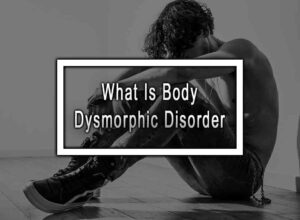Table of Contents
ToggleOvercoming Codependency: Leave Codependency Behind and Thrive!”
Are you tired of relying on others for your self-worth and satisfaction? It’s time to break free from the shackles of codependency and embark on a journey toward healthy independence. In this comprehensive guide, we’ve enlisted the help of experts to bring you ten invaluable tips to overcome codependence, regain control over your life, and build healthier relationships. Let’s get started on this empowering path!
1. Recognize and Acknowledge the Issue
It all begins with self-awareness. Take a moment to understand the signs and symptoms of codependency in your relationships. By recognizing the issue, you empower yourself to make the necessary changes for personal growth and establish healthier connections.
2. Prioritize Self-Care and Self-Love
Loving yourself unconditionally is not selfish; it’s a vital aspect of breaking free from codependency. Practice self-care regularly, prioritize your needs, and indulge in activities that bring you joy and fulfillment. Remember, you deserve love and care just as much as anyone else.
3. Set Boundaries and Stick to Them
Creating and maintaining boundaries is crucial when overcoming codependency. Establish clear limits in your relationships to protect your mental and emotional well-being. Communicate your boundaries openly and learn to prioritize your own needs without feeling guilty.
4. Cultivate Healthy Interests and Hobbies
Discovering and nurturing your individual passions and interests is essential for personal growth. Engage in activities that bring you happiness, boost self-confidence, and help you cultivate a sense of independence. Explore new hobbies, join clubs, or enroll in classes that resonate with your aspirations.
5. Seek Therapy or Counseling
Professional help can make a profound difference in breaking free from codependency. Consider seeking therapy or counseling to gain insights, develop coping mechanisms, and receive guidance tailored to your unique circumstances. Talking to a trained professional can provide a safe space to explore your emotions and beliefs.
6. Foster a Supportive Network
Surrounding yourself with a supportive network of friends, family, or support groups is a crucial step toward overcoming codependency. Seek connections that encourage personal growth, offer constructive advice, and provide a nurturing environment. Sharing experiences with like-minded individuals can inspire you on your journey to independence.
7. Learn to Assertively Communicate
Effective communication is vital for healthy relationships. Practice assertiveness by expressing your needs, opinions, and boundaries clearly, while also respecting the perspectives of others. Developing this skill enhances your self-confidence, nurtures healthier connections, and reduces the urge to depend solely on others.
8. Develop Self-Reliance Skills
Embrace self-reliance by gradually taking charge of your own life. Start small, tackling tasks and decisions independently. As you build confidence, take on more responsibility and trust in your ability to navigate life autonomously. Embracing self-reliance fosters resilience and empowers you to forge your own path.
9. Learn to Embrace Solitude
Alone time can be a powerful tool for self-discovery and personal growth. Embrace solitude to reflect on your thoughts, dreams, and goals. Use this time to develop a deeper understanding of yourself and your desires, untangled from the influences of codependency.
10. Practice Patience and Self-Compassion
Healing from codependency is a journey that takes time and effort. Be patient with yourself throughout the process, embracing setbacks as valuable learning opportunities. Cultivate self-compassion as you navigate the complexities of breaking free from codependency, celebrating every step towards a more independent, fulfilling life.
Conclusion
Breaking free from codependency is undoubtedly challenging, but armed with these ten expert tips, you’re well on your way to embracing a life filled with healthy independence. Remember, self-awareness, self-love, and the willingness to prioritize your own well-being are the keys to overcoming codependency. Surround yourself with supportive connections, seek professional help if needed, and appreciate the unique beauty of your individuality. As you embark on this transformative journey, may you spread your wings and soar high toward a future built on autonomy, self-love, and thriving relationships.
Overcoming Codependency FAQ
Here are the most common questions about Overcoming Codependency.
1. Can codependency be cured completely?
While codependence can be managed and significantly improved, it may not be completely “cured” in the traditional sense. It often involves deep-rooted psychological patterns that may require ongoing self-awareness and maintenance. With therapy, self-care, and a commitment to personal growth, individuals can develop healthier relationship patterns and lead fulfilling lives.
2. How long does it take to overcome codependency?
The timeline for overcoming codependence varies for each individual and depends on various factors, such as the severity of codependent behaviors, the individual’s commitment to personal growth, and the support available. It can take several months or even years to significantly improve codependence, but it is a journey worth taking for improved mental and emotional well-being.
3. Can codependency resurface in future relationships?
Codependence can resurface in future relationships if the root causes and underlying patterns are not thoroughly addressed and healed. It is essential to continue practicing self-awareness, setting boundaries, and prioritizing self-care in order to prevent codependent behaviors from reemerging. Ongoing therapy or support groups can also be beneficial in maintaining healthy relationship patterns.
4. Can self-help books be helpful in overcoming codependency?
Yes, self-help books can be a valuable resource in overcoming codependency. They often provide valuable insights, practical techniques, and exercises to develop self-awareness, set boundaries, and cultivate healthier relationship patterns. However, it is important to note that self-help books should not substitute professional therapy or counseling, especially for individuals with severe or deeply ingrained codependent behaviors.
5. Is codependency only limited to romantic relationships?
No, codependence can occur in any type of relationship, including romantic relationships, friendships, family relationships, and even professional relationships. The core features of codependence, such as excessive reliance on others for validation and prioritizing others’ needs over one’s own, can manifest in various types of connections.












